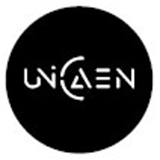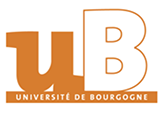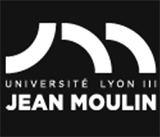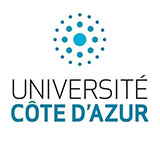Introduction
Côte d'Azur University is a public research university located in Nice and surrounding areas in southeastern France. It is one of the ten excellent universities focused on by the French government's "Investment for the Future Plan" and is also an internationally excellent university recognized by the Ministry of Education of China.
Overview
Student size: about 35,000 students, including 12,565 undergraduates, 5,146 postgraduates, and 1,340 doctoral students.
Faculty: 1,575 academic staff and 1,152 administrative staff.
History
Its predecessor can be traced back to the Nice Law School founded by the Prince of Savoy in 1639. The University of Nice was officially established in 1965. The University and College Community was established in 2013. In July 2019, the University of Nice and others were completely merged to become the University of the Cote d'Azur.
Foundation time
Formally established in July 2019, its roots can be traced back to 1639 Years.
School Strength
Teaching Quality: As a public university in France, the teaching follows the European Bologna Process education system and adopts the European Credit Transfer System. The degrees awarded are widely recognized in Europe and internationally. It provides multi-level courses from undergraduate to doctoral level, focusing on cultivating students' comprehensive literacy and practical ability.
Scientific Research Level: The school has strong scientific research strength, has multiple research projects and scientific research cooperation, and is a member of the Coordinated Research Intensive University Alliance (CURIF) in France, equivalent to the Russell Group in the UK. The "Cote d'Azur University Foundation" established in 2017 raises funds for research projects. In addition, it also hosts the first www interactive multi-purpose server (WIMS).
Institutional Nature
Public University.
Educational Philosophy
Focus on interdisciplinary research and teaching, breaking disciplinary boundaries, and cultivating students' ability to solve complex problems from a multidisciplinary perspective to meet the needs of modern society for compound talents.
Emphasis on the combination of industry, academia and research, actively cooperate with enterprises and scientific research institutions, promote the transformation of scientific research results, improve students' practical ability and employment competitiveness, and promote regional economic and social development.
We advocate international education, encourage students and teachers to participate in international exchanges and cooperation, expand international horizons, and enhance the international influence of the school.
Key laboratories and disciplines
Key laboratories: For example, the 7 well-known laboratories of SPECTRUM Graduate School conduct in-depth research in the fields of mathematics, physical sciences, astrophysics, chemistry and earth sciences, and their research topics are recognized in international rankings; DS4H Graduate School has 300 researchers and professors in computer science, electronics, social sciences and laboratories affiliated to national research centers (CNRS, INRIA), and conducts scientific research in the fields of IT, electronics, digital law and digital economy.
Key disciplines:
Law, political science, economics and management: covering multiple professional fields from law, politics to economics and management, cultivating students' professional qualities and comprehensive analysis capabilities in the field of social sciences, and providing a large number of professional talents in law, economics and management for the society.
Medicine and dentistry: The medical profession has an important influence in the local and surrounding areas, and has trained many professional doctors and researchers for the medical industry. The dentistry major focuses on the education and research of oral medicine, and has trained a group of excellent dentists and oral medicine experts.
Natural sciences: including basic disciplines such as mathematics, physics, chemistry, and earth sciences, providing students with a solid theoretical foundation in natural sciences, while also conducting cutting-edge research in related fields to promote the development of natural sciences.
Life and health sciences: focusing on biology, biochemistry, pharmacology, molecular genetics and other disciplines, conducting basic and applied research in life sciences, and committed to improving human health, providing important theoretical support and technological innovation for the medical, pharmaceutical and other industries.
Faculties
The school has the following main faculties:
Faculty of Law, Political Science, Economics and Management
Faculty of Literature, Arts and Humanities
Faculty of Medicine
Faculty of Dentistry
Faculty of Natural Sciences
Faculty of Human and Sports Science
Ranking
Its predecessor, the University of Nice, is ranked in the top 500 of the "Academic Ranking of Global Universities".
Expenses
As a national comprehensive university, the University of Cote d'Azur is free to study. Students only need to pay a small registration fee. The annual living expenses in France are around 40,000-60,000 RMB, including transportation, telephone, food, various insurance premiums, etc.
Campus
Campus distribution: There are six main campuses, including the Valros Campus (Science), Trotabas Campus (Law and Political Science), Carone Campus (Literature, Arts and Humanities), Saint-Jean-de-Angers Campus (Economics and Management - Dentistry), Pasteur Campus (Medicine), Sophia Antipolis Polytechnic Institute (Engineering), in addition to some secondary campuses, such as Villefranche-sur-Mer outside Nice, Cannes, etc.
Teaching facilities: The campus is equipped with modern teaching facilities, such as laboratories, libraries, etc., providing students with good learning and research conditions. For example, the scientific laboratory of the Valros Campus provides a place for practice and research for students majoring in natural sciences; the libraries of each campus are rich in books, providing students with a wide range of knowledge resources.
-

University of Angers
-

University of Caen Normandy
-

University of Bordeaux
-

Claude Bernard University Lyon 1
-

University of Burgundy
-

CY Cergy Paris University
-

Clermont Auvergne University
-

University of Artois
-

Jean Moulin University Lyon 3
-

University of Franche-Comté
-

Mesoamerican University
-

Istmo University
-

Mariano Galvez University of Guatemala
-

Regional University of Guatemala
-

Galileo University
-

Francisco Marroquín University
-

Rafael Landívar University
-

University of the Valley of Guatemala
-

University of San Carlos of Guatemala
-

Technological Institute of Tlaxcala Plateau
-

Golfo University
-

Technological University of South Sonora
-

Technological University of Huejotzingo
-

Tizimín Institute of Technology
-

Chilpancingo Institute of Technology

